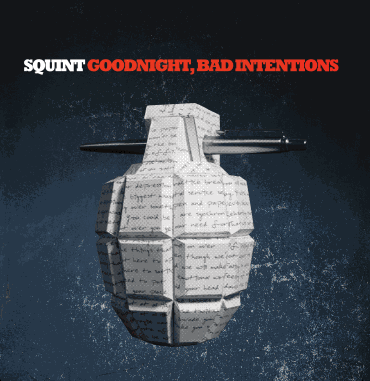Weston Cutter's Blog, page 34
November 26, 2010
Dylan Personal Ads
It's shameful that I've taken this long to get words on (digital) paper regarding Wilentz's Bob Dylan in America, though it's also sort of not that big a deal: if you're into Dylan, and you've got yr ear remotely to the ground regarding relseases and upcomings and etc., you knew about this book awhile back, and me pointing to it now and saying yes should mean nothing, nothing at all.
For those of you not in the above-mentioned group: holy crap you've got to be reading Sean Wilentz's Dylan book. First, let's step back: just about simultaneous with this book's release was Greil Marcus's new one, a collection of writing on Dylan covering nearly 50 years, a fact I want to acknowledge here simply because, one, Marcus's writing is lithe and gorgeous and always revelatory (exhibit a, b, and c), and because, two, Marcus's book is an interesting companion to Wilentz's, and that's about all I'll say about them together.
Here's why you get Wilentz's book: because Scorsese's blurb on the book's back ("In fact, reading Wilentz's Bob Dylan in America is as thrilling and surprising as listening to a great Dylan song) is false, and because you owe it to yourself to know why it's false. Here's why: because Marcus's Old, Weird America (or Invisible Republic for you hardcover folk) is fascinating, but you want to read more about connections in Dylan's music with stuff other than Harry Smith's Anthology. Here's why: because Dylan's music has lasted, and the longer he and it last, the more it becomes clear that it's neither because of nor despite his perceived at-the-time misfires (hello, Christian albums). Here's why: because Justin fucking Beiber won artist of the year at the AMAs like a week ago, and because it's embarrassingly sad that anyone could use the word artist to describe that teenage haircut.
Here's why I mention Beiber and here's why it matters with Dylan: I hope to the contrary, but there are fewer and fewer long-term career artists (Beiber being exhibit A). Claim you're an indie sort and you totally can hear how, say, the National or whoever have grown since their first album—you're right, certainly, but I honestly have a hard time thinking of any artist, in any field, as restlessly searching, as who-gives-a-shitly hellbent on finding no thing but a path to that thing. If that all seems esoteric and abstract and vague, fine, but pop quiz yourself: what's the chance of your favorite artist being around for the next almost 5 decades, making good work? Further: what's the chance of yr favorite artist being around and making good work through almost 5 decades, and then, on the eve of the 5th decade, coming out with a Christmas album?
All of that is why one should come to Wilentz's book: because regardless of how anybody feels about him, Dylan's work stands. Here's why you should care so much: one of the functions of good art is that it's uncompromising, yes? It's fully in its own pursuit and chase: art doesn't get demographically tested, roundtabled. I'm not an alarmist—folks'll be making uncompromising, searching art forever, in all mediums and disciplines, but it might be awhile till someone's able to do like Dylan has and actually be a relevant, riveting part of the national conversation about What America Is.
 They Call Me Naughty Lola: Personal Ads from the
London Review of Books
They Call Me Naughty Lola: Personal Ads from the
London Review of Books
Look, this book's been around like 5 years in the U.K., I'm pretty sure—yeah, copyright's 2006. Meaning: if you've heard about this or seen it, that's why. However: the UK edition's been expensive to secure, and theirs is a big hardcover while now we yanks get this awesome pocketable paperback.
There are low and high ways to praise this book. The low ways are simple: the personal ads are screamingly hysterical. I've read this book before, but still, out letting the dog run in the park and walking around, paging through, I couldn't help but howl at some of these things. "A girlfriend isn't a girlfriend unless she makes my mother cry with grief every time she visits. For two years now she's sat, contented, in front of the TV with not a care in the world. That's where you come in. rofessional M, 38, seeks heartless common slut with no small knowledge of sheltered-housing application procedure." Here's what fantastic but true: that's actually, overall, not that funny an ad. Here's what's even more fantastic: this'll be the most satisfactory money you'll spend on a book in some time, I promise.
High ways of praise: this book's a revelatory glimpse into 1) the differences in romance and public/('vulgar') language between the UK and the US, and 2) the math, regarding risk and reward (in terms of personal exposure and ability to make a potential partner wet him-/herself), in educated journals (the London Review's nothing to sniff at). I'm not trying to sound to arch or unserious: the book's actually really interesting in this way: it's hard to imagine newspapers wouldn't be more popular in the states if even some tiny personal ads read "LRB readers. You are all just English lecturers who like Bjork. Get over it, then make love to me. Each and every damn one of you. Man, 98."
Whatever: buy it. If you hate it, Valentine's'll be here soon enough, and you'll either want some sniffly but funny consolation, or you'll want something rad and winning to share with whoever you've convinced to kiss you.








November 23, 2010
An Object of (Phenomenal) Beauty
An Object of Beauty by Steve Martin
This seems to have been my year of resistance toward certain books—I've held back on letting myself fall for books more often than I care to recall. It's been some combination, always, that's kept me from reading something: it's because I've read a bunch about how great the book is which, therefore (of course, because I'm an idiot), makes me uninterested, or it's a faulty understanding of what the book's actually about, or it's because I've decided, for some reason, to become inured and stupidly dismissive of the book's author. This has happened over and over, and, honestly, it doesn't bode well for my readerly future (I assume it'll pass: maybe I'm just in a real prickish phase of my literary life).
Chalk this latest avoidance up to reason #3, though in this case it's complicated: I believed I wasn't interested in Steve Martin as a writer because, honestly, his post-op face creeps me out at this point, and because I think his shit can be insufferably precious (that might be a stretch, too: Shopgirl happened to feature an actor I loathe, and so I haven't dug the thing; had someone I enjoy watching replaced the actor I hate seeing, it could've been a hugely good movie, for me [though still there's be Martin's face to contend with]). Anyway, this writing here now is getting insufferable: I avoided Steve Martin's work for all sorts of reasons.[image error]
But here's what's up: Steve Martin's An Object of Beauty might be one of the most satisfying, natural-feeling novels I've read this year. This has, let's all acknowledge, been a great year for fiction: Franzen's came out, plus there was Skippy Dies, to say nothing of One Hour of Television and The Room and the Chair and the new Nelson and Yamashita's I Hotel and and and…anyway: chalk Martin's Object up there, at least top-10, and, if yr feeling generous, maybe even top-5. I'd go that far.
So why? Why's the book so worth yr time and dollars? First, Object is a told story: it's in first person, and we're given the story by a man named Daniel Chest French Franks. Here's what's odd: maybe it's because I'm too versed in post-modern trickery or whatever, but fundamentally told stories/books, those in which some voice seems narrating things instead of the story simply, third-personly being given, are tricky—I'm likely as not to not believe them. Because (I'm not alone, right?) I've had too many experiences with those voices which end in…well, post-modern trickery, in moments where the voice turns to me, acknowledges what's just happened, played with me. Yes? And so now I feel like voices which don't acknowledge the trick of post-modernism are, somehow, cheaper maybe? Fuddy duddy? Something. Yet Martin's Object's voice is fantastic: Daniel's a fantastic character, and his mildly arch dialect and tone is great, grounding and gorgeous, page after page.
Of course, Daniel's language may have something to do with how you get sucked into the story, but Object's beating, sexy and wildly riveting heart is Lacey Yeager, who Daniel meets at college at Davidson, and who, over two decades (roughly: 90′s through the first decade of 2000), is something of a comer in the New York art world. Here's a question I couldn't possibly answer: would Object of Beauty be riveting to someone uninterested in the New York art world? Here's the best I could say to that: though it's Object's milleu, New York, the art world, all of it is simply rich and evocative and good dressing for a very very very good story, and the story is summed in these words form page 16 of my copy of the book: "She started converting objects of beauty into objects of value."
 Think of that sentence as an engine: that notion, the relationship between beauty and value, drives the entire book. Here's what's most compellingly fascinating, though: Object of Beauty reads, all the way through, as a terrifically accurate sketch of the art world and sales and everything, but the reader finds out, quite literally on the last page, that there's a whole other story that's been happening underneath the whole time. How to explain this…you know how, in a good meal, the wine may bring out flavors in the main course you may not've tasted otherwise? There's a complementariness at work, one which is fundamentally revealing as well? The wine never makes something taste one way or another, it simply opens things up, allows the taster to realize it was there always? That's how Object finishes: with a taste that suddenly makes the reader aware (and I'll add: gratefully, rapturously aware) of the story that was murmuring beneath the whole time. I'm not sure what's more expertly executed: the skull-clutchingly subtle layering of story beneath story, or the holy-shit spark of connection at book's end. I know I still probably won't watch a ton of Martin movies, mostly because of that face. I know, however, I'll read absolutely anything the man writes. This book's gold.
Think of that sentence as an engine: that notion, the relationship between beauty and value, drives the entire book. Here's what's most compellingly fascinating, though: Object of Beauty reads, all the way through, as a terrifically accurate sketch of the art world and sales and everything, but the reader finds out, quite literally on the last page, that there's a whole other story that's been happening underneath the whole time. How to explain this…you know how, in a good meal, the wine may bring out flavors in the main course you may not've tasted otherwise? There's a complementariness at work, one which is fundamentally revealing as well? The wine never makes something taste one way or another, it simply opens things up, allows the taster to realize it was there always? That's how Object finishes: with a taste that suddenly makes the reader aware (and I'll add: gratefully, rapturously aware) of the story that was murmuring beneath the whole time. I'm not sure what's more expertly executed: the skull-clutchingly subtle layering of story beneath story, or the holy-shit spark of connection at book's end. I know I still probably won't watch a ton of Martin movies, mostly because of that face. I know, however, I'll read absolutely anything the man writes. This book's gold.








November 19, 2010
And Now! The Overlooked Part 2
It's November (as if you weren't aware) and there've been way more books read than covered here by Corduroy Folk this year. Here's the start of the final-scramble, an attempt at giving some blinking, glancing attention to all the great books that've hit this year to which we haven't given enough time.
The Architecture of Patterns
by Paul Andersen and David Salomon

You've read that Foer's got a new book? One in which he's taken x-acto (or whatever) to page (let's presume a machine's actually done the die-cutting, despite the fact that the book's $50)? I'd like to see that book, and not just because Foer's stuff is usually worth reading (he's batting above average: one book was great, one not great, one okay, and his stories are almost always eye-poppingly good reading), but becaue the book must, fundamentally, rejigger a reader's notion of what a page looks like and/or can be.
So too Architecture of Patterns, which is one of the most satisfying visual books I've held in a long, long time. Here's the mathy breakdown of what the book's pushing toward: one must first understand pattern as being an organizing, synthesizing structural thing—a pattern helps us understand chaotic day-to-day stuff. Here's the problem, say Andersen and Salomon: pattern becomes, too often and too easily, inflexible, boring, expected. Here's what cool, say same: pattern needn't mean blocky repetition; pattern can mean flexibility; patterns can actually be systems through which disparate stuff's integrated.
Here's the thing: this book's smart, and asks for smart readers. Here's what's awesome: not since McPhee's geology writing have I read a book in which my vocabulary's been so exploded (rep sentence: "A pattern's sensibility can be both responsive and influential; an active agent organizing material and functional forces as it elicits emotional and sensory responses." Rep section title: Elastic Precision). Here's why you pick up this book and read it cover to cover: it'll make you look at everything differently, literally. That quoted sentence? Break it down to simplest bits: a pattern can be in dialogue with those who experience the pattern. I dare anyone to read this book and not immediately look at her/his world suddenly full of questions.
Skin, Inc. by Thomas Sayers Ellis
 This book is more and bigger than I can fairly go into here. Everyone should be reading this poetry. I haven't read this interesting and exciting of poetry since…well, maybe since I got knocked into Terrance Hayes's Wind in a Box, though it could be before that, even. Ellis is fucking fearless, and has heart, and isn't scared to laugh while he's fearlessly chasing that which makes him pulse. If you're following poetry and not following Ellis you're not doing it right. Read this book. Buy this for every single teenager you know. Buy it for every single person you know who quit reading poetry after college. Buy it for everyone.
This book is more and bigger than I can fairly go into here. Everyone should be reading this poetry. I haven't read this interesting and exciting of poetry since…well, maybe since I got knocked into Terrance Hayes's Wind in a Box, though it could be before that, even. Ellis is fucking fearless, and has heart, and isn't scared to laugh while he's fearlessly chasing that which makes him pulse. If you're following poetry and not following Ellis you're not doing it right. Read this book. Buy this for every single teenager you know. Buy it for every single person you know who quit reading poetry after college. Buy it for everyone.
 The Weather of the Future
by Heidi Cullen
The Weather of the Future
by Heidi Cullen
This is the second book I've read recently which features a speculative aspect—the first was Perfection Point, which posited absolute limits for human accomplishment in sport. Cullen's Weather of the Future establishes, in its first 50+ pages, a sort of here-we-are regarding weather, extreme weather patterns and fluctuations, and, most awesomely, on differentiating climate from weather (climate: long-term patterns; weather: yesterday, today, tomorrow, the wknd).
But after those first 50+ (it's actually almost 60) pages? The reader's whisked abroad and ahead: New York City into 2050, ditto Austalia, Africa, Canada, Greenland, California. This is a luxuriously interesting trick Cullen's trying (and being allowed) to pull: each chapter focusses on a specific place, tracking its climate from recorded history to the present, and then, quickly, Cullen pushes the climate forward, educatedly speculating how the next 40 years will play out.
There's a massive danger in such a trick, of course: speculation, no matter how well-intentioned or scientifically-informed, can make those with doubts more certain of their doubts if the speculation doesn't come to pass—which is a long-winded way of saying that you can go ahead and expect Cullen's book to be a bright target for skeptics and simple-minded critics. What it is for the rest of us, for those of us with an open enough mind to listen to one of the world's leading climatologists, is a scary and strange book: what happens if we keep doing what we're doing? What will happen as the world keeps fundamentally changing—not just in terms of degrees, but in terms of topography, storm severity, patterns of seasons, etc? Cullen paints an alarming picture, and you're left wondering, at book's end, if we're gonna stupidly, dimly waltz into the most easily-avoidable catastrophe ever. It's a hell of a thing, this book. Read it now—especially if, like me, you're in any part of the country in which the weather's not doing what it should be doing for mid-/late-November (hello, barefoot in IA).








November 16, 2010
And Now! The Overlooked, Part 1
It's November (as if you weren't aware) and there've been way more books read than covered here by Corduroy Folk this year. Here's the start of the final-scramble, an attempt at giving some blinking, glancing attention to all the great books that've hit this year to which we haven't given enough time.
Here's what's fun about aging: the increasing embarrassment of coming to things later and later. I was lucky to catch certain comets when I was still a kid—read Wallace young enough, ditto Powers, ditto Moore and DeLillo and etc.—but there's all sorts of writers I'm only now getting to, here as I'm past 30. This isn't a problem, not by any stretch, as much as its cause for slight discomfort, and that absent wonder one does—what was I reading before instead of reading this?
I've talked up Nelson's short fiction before, and you for sure should be all over that work, but Bound, her latest, which came out this summer? Good lord these sentences are fantastic machines. This: "Her mother said nothing, but the silence was acquiring an interesting texture." Or this: "While he talked and clicked and scrolled, he realized he was inviting, or perhaps merely allowing, his mother-in-law to pity him." Or "And God was listening, it appeared; she rode bumping and pitching, sailing and banging, winding through the desert for many digressing miles." It's not just that the language is thickly gorgeous throughout: the depth of human understanding Nelson's got on display page after page is just damn near shocking. Bound was one of those books which I'd pick up and put down but which I could never put down enough to get let go of by the characters witihin. Oh, and if plot's significant: mother's death, orphaned daughter, old friend and connections, mothers and daughters. Feel silly? Good: no encapsulation of Bound will do it decent justice.
Before anything else, let's acknowledge that we all owe Barich our book dollars and reading energy simply because he wrote one of the best books ever: Laughing in the Hills (note: not one of the best sports books ever—there's no qualifier: the thing's one of the best, ever; it's rubbing shoulders and elbows with tall and hard classics—it's such a good read [if you don't have it, get it--it's really far better than you can even imagine]). As if that fact weren't enough to guarantee a readership, let's try this: Barich is a former NYorker writer, and now lives in Ireland and the states (he and Thomas Lynch, apparently, following the same track [Lynch's new book of poetry's great--don't know if we'll get into it deep here at Corduroy, but it's a fine book, a nice dose of formalism if that's the verse yr into]), and his latest book, Long Way Home, is subtitled On the Trail of Steinbeck's America, meaning: you should see this book and think: I want my own Charlie to travel with.
Here's what's cool and interesting: Barich's Long Way Home is the tale of him travelling just shy of 6000 miles across America in the autumn of 2008 (literally right up to the election), travelling as a native who now lives elsewhere, travelling as someone who has his serious doubts about the American experiment (like who doesn't; especially in the autumn of 2008, who didn't?). Here's what's awesome: by the book's end, Barich has found ample evidence to keep believing in America despite the closed-minded-ness of small towns, the brutal ugliness of strip malls, the casual stupidity that seems to always be festering somewhere, everywhere. "All across America, I encountered people who weren't threatened or cowed and still ardently believed in the bright promise of the future." In all sorts of cool ways, the ideal companion book for Long Way Home is not, actually, Steinbeck's Travel with Charlie, but Greil Marcus's Shape of Things to Come. Barich's book is a strong, frank reminder that America's an invention, and that machinery depends on each of us investing what we can, annually, daily, to the invention. It's a hopeful book, satisfying as hell, and as masterly written as anything you're likely to find.
The Particular Sadness of Lemon Cake
by Aimee Bender

Here's why I'm dumb: because I assume that everyone knows certain things. I believe everyone knows that the best snack is chips and salsa, and that everyone knows that the Minnesota Twins are the reason to care about baseball, and that the best music in the last decade has, yes, sure, been made by Wilco and Dylan and the National and the rest, but that the real best indie stuff's been made by un-/under-heralded bands like the Glands and Throw Me the Statue, and that the best way to watch the Wire is to just sit down and watch all the discs, back-to-back, until you've seen everything in one massive ingestion of brilliance.
And I assume people automatically purchase and consume art made by certain people. I assume everyone knows enough to go see whatever Christopher Nolan directs, for instance. I assume, equally dumbly, everyone knows enough to read anything by a handful of authors: Richard Powers, Lorrie Moore, Jorie Graham, Terrance Hayes, Lewis Hyde, Matthea Harvey…the list is actually pretty long on this one. Anyway, this is all sort of bullshitty preamble: I expect everyone already picked up The Particular Sadness of Lemon Cake long ago, right when it came out. Why? Because nobody but Aimee Bender's writing about a character who can sense the emotion of whoever made her meal. Because nobody but Aimee Bender can write such California-y books and make them palatable: weird, dreamy, just a touch impossibly awesome but also dark, touching without being maudlin or syrupy. This is not a review, by the way: it's public service. You should be reading Bender. You've never read any Bender, you say? Good god, kid: get to work. Start wherever, go wherever. Like the best maps, you can go any direction you want through the land Bender's made.








November 9, 2010
Welcome to the Break My Heart Show: A review of squint's "Goodnight, Bad Intentions"
A lot has happened for squint (lower-casing intentional) in the five years since the release of t Tinsel Life, their second studio album. They've toured extensively, they've lost a few members and gained some new ones. They've released a music video and are already at work on two more. They've been robbed, endorsed (Jagermeister, Atlas mic stands), and have, as of something like a week ago, become the opening credit band for a Canadian television show.
For most of us—at least those of us would spend time on a site like, well, this one—this might be enough excitement to hold us over a couple decades. For squint, however, this is all just par for the course. The members of the Austin- based quintet thrive on choas, and as their latest album Goodnight, Bad Intentions demonstrates, they have grown from all this hard work, honing their songwriting skills and stengthening their group dynamic.
based quintet thrive on choas, and as their latest album Goodnight, Bad Intentions demonstrates, they have grown from all this hard work, honing their songwriting skills and stengthening their group dynamic.
The album is raucous and energetic, loaded with catchy hooks and the kind of self-deprecating wit that has made them staples of college and indie radio stations across the nation (they were recently ranked number 3 on the Reverb Nation Charts for Austin, where they also performed an acoustic set at SXSW festival). Alternating between frenetically-paced numbers like "Flustered" and slower, more moderate tracks like "To My Protagonists:" and "Elisabeth," GNBI showcases the band's versatility and lyrical dexterity in a way that their previous albums have hinted at but never fully disclosed. The guitars take on a much more prominent role here; this, presumably, has a lot to do with the addition of guitarist Ronald Norman who, along with primary guitarist Matt Fredrickson, provides a kind of second vocal presence that nicely offsets that of lead vocalist Dane Adrian.
It's probably a stretch to say that the band's music has grown angrier over the years, though they do seem to have cultivated a healthy degree of cynicism. For instance, it's probably no coincidence that the first track on the album, "We All Break the Same," opens with the lines, You must have/mistaken/me for a sympathetic ear, nor does it seem to be by chance alone that this song segues wonderfully into the scathing "To My Protagonists:," : This is a song/for all the people/who asked me to write about them/you ain't worth an entire song/but I got all these little lines/and you  can figure out which one is about you.
can figure out which one is about you.
What makes songs like these so gut-punchingly resonant is their steadfast sincerity: there's never point in "Protagonists," for example, at which the listener doubts that there really are people who've demanded some kind of musical head-nod from the band, and that Adrian really does view the band's music as a kind of weapon. In fact, that's precisely how he characterizes it in the following verse: "Always/I am armed with ballpoint pen/and memories/careful with your tone my friends." (Adrian, by the way, might have one of the most interesting voices in indie rock right now; imagine Johnny Rotten channeling the dude from Filter.)
By this measure, it's impossible not to think of GNBI as anything other than a kind of musical memoir, culled from a scattering of bitter journal entries. Take, for instance, the first few lines of "Elisabeth": I'm guess I'm in denial/isn't that the first stage?/I'm searching for a meaning/but nothing comes to mind/I'm really looking forward to depression/cos that means that I am one step closer/to accepting that constant reminder of change/that something is different than it was just a moment ago. Who looks forward to depression? Well, if the success of indie-pop is any indication, pretty much all of us. That's a large part of why we listen to music in the first place.
Fans of the band will no doubt be familiar with the song "Tinsel Life" off the album of the same name, in which Adrian, portraying a character in the throes of heartbreak, narrates his frantic search through his CD catalogue for a tune that that may properly epitomize the situation. What's interesting about the track is that, in a kind of too-obvious-to-even-notice way, this seems perfectly reasonable. Why shouldn't finding the most appropriate song be the primary concern when one's heart is breaking? Of course every breakup demands a soundtrack. This is the way that we (or at least those of us in that certain bracket of folks who appreciate good indie rock) make sense of our failures, those low points when our expository abilities become irrelevant, troublesome. That is sort of why we have bands like squint, to remind us during those times that all the melodrama, all the sophomoric stuff that sends us scurrying to our CD racks, actually does have meaning, that with the right soundtrack, it's not so bad.
when one's heart is breaking? Of course every breakup demands a soundtrack. This is the way that we (or at least those of us in that certain bracket of folks who appreciate good indie rock) make sense of our failures, those low points when our expository abilities become irrelevant, troublesome. That is sort of why we have bands like squint, to remind us during those times that all the melodrama, all the sophomoric stuff that sends us scurrying to our CD racks, actually does have meaning, that with the right soundtrack, it's not so bad.








November 3, 2010
Best Political Book of the Year: Herding Donkeys
 It's not that I've lost interest, it's that I've gotten older. It's not that I'll never volunteer for another candidate, for any office, but I've spent the coin of my youth now, and I've…well, I've just seen stuff. We've all seen stuff. I cried, emphatically and hard, over the death of MN senator Paul Wellstone at October's close in 2002; I wonder if I'll cry about a politician ever again. I doubt I'm alone about any of this (other than crying about Wellstone, but, really, if you were a Minnesotan of a certain age, and in-state, and involved, it was terribly moving and sad).
It's not that I've lost interest, it's that I've gotten older. It's not that I'll never volunteer for another candidate, for any office, but I've spent the coin of my youth now, and I've…well, I've just seen stuff. We've all seen stuff. I cried, emphatically and hard, over the death of MN senator Paul Wellstone at October's close in 2002; I wonder if I'll cry about a politician ever again. I doubt I'm alone about any of this (other than crying about Wellstone, but, really, if you were a Minnesotan of a certain age, and in-state, and involved, it was terribly moving and sad).
To what end such a preamble? To simply note that I was once but am likely no longer among the demographic a book like Ari Berman's Herding Donkeys is aimed at, and I'm noting all the above as a sheepish, guilty way of admitting that, no, I wasn't thrilled to get into a book subtitled The Fight to Rebuild the Democratic Party and Reshape American Politics. In fact, I set the book aside, read other stuff instead. For like a month.
But then I finally got curious, and here's the kicker: this book fucking rules. Let me stress: note the above. I really, really was tired of all this crap, was happy to let my 30′s tick slowly by with the understanding that I'd maybe wake up 40 one day and realize I no longer cared, no longer was willing to cry or care deeply about politics. I really, really thought that was the path I was on.
However! But! And then!
Then enter Ari Berman. And then enter the hero of Ari Berman's riveting account of the 2006 and 2008 elections: Howard Dean. Please note: I can hear the groans. Him? you're asking, frustrated already. Here's a put-down foot, a thickly determined voice: HIM.
Why's Dean such a riveting focus? Why should anyone, no matter how bleeding-hearted-but-frustrated, no matter how the-government's-the-problem-not-the-solution bent, read about Howard Dean? Simple: every single contemporary politician who gets behind any phrase having to do with assuring prospective voters that s/he'll work hard to get the government back in the hands of the people, that's Dean-ian, that phrase, that promise. The difference between Dean and most politicians with regard to that phrase and idea is that Dean was actually capable of getting behind such a notion and delivering on it, while most politicians are woefully (if not criminally) stupid and deceptive (obvious note: stupidity's bipartisan).
You've heard the words already: the 50 state strategy. If you pay any decent level of attention to things, you may too nearly glaze over at the phrase's mention. Berman, however, will convince you to care about such a phrase—and, much more significantly, he'll make you care about the idea behind the phrase. Meaning: I defy any reader to pick Herding Donkeys up and read about democratic rallies in Idaho and not be moved. It's honestly not even partisan (shit, maybe it is, but if you're so small-hearted you can't be excited about the opposing team's few fleetingly brief moments of basically unalloyed goodness, fall off a bridge, please), that scene: it's moving, and it's thrilling, and, if you're a voter, it's a dangerous scene to read because it may make you want to (again, despite getting shin-kicked for doing so over and over) believe.
Because, though Obama was the one campaigning in Idaho, it was Dean's strategy, which strategy featured and was built around a willingness to look at the country and see 50 states full of constituents instead of some puzzle-piece jumble of yes/no boundary-drawn demographic-breakdowns only good for securing 270 votes for the winning team. Because that's what Dean got off the ground: the notion that the whole country should be what's talked to and with regarding politics. This is real and this is serious: what one understands through reading Berman's account of the democratic party and the shifts that transpired over the last few election cycles is that there was some seriously cold calculation going on until 2006 and 2008 (the book's focus and emphasis is on the presidential election of 2008, though the seeds were planted earlier). Did everyone feel this way? Does everyone? That we as citizens are taken for granted, especially those of us in "safe" states ("safe" for certain parties), and so if you're, say, a democrat in Idaho (or Texas, or Indiana, or [until recently] Colorado), you're just ignored, passed over like an un-tuned-into radio station?
If you've felt that way, and if, for a second in 2008 you didn't, it was because of Howard Dean, says Ari Berman. It was because of this 50 state strategy. Black-and-white like that, factually, it doesn't sound inspiring or mega or deep or whatever, but as felt reality, the difference between the candidate you'd like to cast a ballot for just bothering to acknowledge you versus him/her taking certain 'truths' for granted and not even showing up to thank you for offering your vote was…well, look at the election map from 2008.
I don't know if this write-up's enough of the high praise Ari Berman and his fantastic book deserve. Here's what I know: I was loathe to read this book, and yet it's now easily among my year's favorites, and if there's any book you should think it similar to, it's Tom Wolfe's The Right Stuff. What? A book about the development of NASA? Yes, exactly that. Because, for those who've read that phenomenal book, we know that what Wolfe traced were the shifts and splits that created NASA as a separate thing from the Air Force, from Yeager and the flyboys who were already strapping themselves to rockets to the presentable, straight-A Eddie Attaboys that eventually dominated NASA. In the same way, Berman traces how the democrats were, for just a minute, trying to change the way elections were done, how campaigns were campaigned: massive numbers of small donors versus dozens of huge ones; few but huge electoral-college-vote rich states preyed on instead of more and smaller states actually talked to. It's not a difference in scope, but a difference in kind, and the story behind it is just riveting, addictively page-turning stuff. It's also, of course, if you're of a certain political persuasion, sad reading: there was such a movement, such a moment, and, for now, that moment seems to be receeding ever quicker in the rearview. Read Berman's book because it's gorgeously compelling stuff, but also, maybe, read it so that history can, in the best ways, repeat itself. Read it so that you don't forget that we're all worth being counted and taking part.








October 26, 2010
Perfection / Termites / Books
The Perfection Point
by John Brenkus

John Brenkus's The Perfection Point is a hell of a fun read, the sort of breezy and hell yes of a book some of us may need these grayer autumnal days. The host of ESPN's Sport Science, Brenkus has written a book which is one big glance out to distances unlikely to be attained: what's the limit of human sport capability? How far could a baseball be hit, a golf ball driven? How about the longest someone could hold her breath under water, or the fastest one could swim a 50?
Here's why this book ends up being fascinatingly readable: Brenkus begins chapters with false newspaper stories set in the future, speculative fictions which cover the imagined narratives Brenkus is breaking down the numbers for in present tense. What's strange about that little ploy is nearly everything: if I were to tell you there was a great book which, on page 34, included a story set in Russia in the year 2344, you'd likely not be guessing the book was written by an ESPN guy, yes?
An emphatic indeed is what I'm hoping you'll be now mouthing. What these little fictions (which thread through each chapter; the stories begin each chapter and, usually, end each chapter as well) accomplish is the tricky, fascinating task of gounding sports accomplishments in historical contexts. Most of us are pretty keenly aware of the more overt ways these things are manifest (see Bonds, Barry), but there are smaller, less-overt ways things like these come up, too (LZR swimsuit; carbon fiber golf clubs, etc.).
Maybe best about the book? It weds its futuristic speculations with Brenkus-penned absolutes—that no one will ever swim a 50 faster than just more than 18 seconds. Is there a single reader, anywhere, who won't automatically think I want to do that or (much more likely) I'd like to see someone else do that? There is not one single reader anywhere who won't feel that way. Read on.
Oh good lord. Do you remember Some Things That Meant the World to Me? From last summer? How Mohr, with his madfurious language and the ground shaky undernearth Rhonda as he made his strange and hallucinatorially freaked way through certain worlds? Remember how nothing else came close to that novel for sheer is-on-fire language (Blake Butler's stuff, certainly, actually, up there and close)? And how it was this fantastic new-ish press, Two Dollar Radio?
Of course to all that. Of course to another year, another Mohr book, this one, Termite Parade, even better if scarier (Blue Velvet/Mullholland not Scream scary), if less holy-shit-that's-one-flourescent-life and more wait-wait-I-can-imagine-that. Is anyone else lobbing sentences which feature such fragmentingly wild ordnance? Is any other press putting out such dynamite, gorgeous, suck-you-in books? No and no. Final question: what more will it take for you to get this book now?
 Bound To Last
, edited by Sean Manning
Bound To Last
, edited by Sean Manning
This is strange: Manning's got a bizarre little niche for himself now, having edited several nonfiction collections (and written a memoir as well, which I've not read). The cool thing is, he's editing anthologies which are fairly fun and interesting to read—famous folks (mostly writers, though also Craig Finn of the Hold Steady) writing about their favorite baseball players, for instance—and this latest anthology might be the best, though "best" deserves some unpacking. What it is, in simplest terms, is exactly what it's cover claims: 30 Writers on Their Most Cherished Book. Take a second, when you get to this cover, and note two things: 1) Catcher in the Rye doesn't show up in-text, but this anthology's cover is the ultimate in homage, and 2) take careful note of that word cherished. You'd be surprised how slippery it'll be.
What do I mean? Well, the thing starts with Jim Shepard, whose piece is not just phenomenal but fantastical—much like all of what Shepard writes—and the books he cherishes (Crying/49, Heart/Heart/Country) come through strange channels. There's the phenomenal Terrence Holt talking about his Merck Manual of Diagnosis and Therapy, there's Hadju talking about his copy of Ellison's masterpiece Invisible Man, there's Jim Knipfel's entry on Pynchon's Mason & Dixon, which entry is the second-most emotionally compelling entry of the bunch. What's the first most compelling? Here's a line from it: "I was asked to contribute to this anthology because I am the widow, via hanging, of the writer David Foster Wallace."
Good lord.
So that's in there, which means this book's got a guaranteed audience from all the DFW-heads out longing every minute for some new bit to chew: here's KGreen talking about Amy Hempel and grief. Maybe there's no need to say much else: certainly if you're here, looking at book reviews on a tiny book-review site, you already love books; this book's made for all of us who do so.








October 19, 2010
Physics + Imaginary Objects, Cold Water
The Physics of Imaginary Objects
by Tina May Hall

I don't suppose I'm the only one with an old beloved hardcover of Renata Adler's Speedboat, or that I'm alone in being real interested in books which are contest winners judged by writers I admire. Regardless: whoever you are, you should be reading Tina May Hall's Drue Heinz Prize-winning book The Physics of Imaginary Objects, and here's why. First, this may be one of the prettiest, most satisfying books to actually hold and see that I've come across in some time–stuff as banal and pass-over-able as the pagination betrays how cared about and for this book has been in all stages.
But layout's never exclusively why we go to collections of stories. Here's why we go to stories:
We will know each other by the way our watches slip from our wrists, the bruises on our knees, our winged shoulder blades tenting silk dresses.
We eat; we eat. We eat like wild boars, like wolves, like cyclists in training. We love the bloody shreds that cling to the T. We suck the gob of marrow that floats to the top of the soup. We gnaw the chicken down to splinters.
Everything is bone, bone, bone.
That's the start to Tina May Hall's "The Skinny Girls' Constitution and Bylaws," and if you're more into combos, the right hook to go with the left jab of that story is "All the Day's Sad Events," the book-finishing novella which features mundane banality crossed with a casual bewitching that's all the more creepy for being somehow both threatening but not malicious. Here's the truth: this book's worth getting exclusively for "All the Day's Sad Events," though with stories like "Skinny Girls'" and other dazzlers like "By the Gleam of Her Teeth, She Will Light the Path Before Her" and "This Is a Love Story, Too," you'd maybe be hard pressed (or silly) to try to narrow a list of reasons for getting this book. There's a great hunger at large wolfing through The Physics of Imaginary Objects, and I'll say this, as somebody who occasionally gets pissed off or let down or both by contest-winning things: this one absolutely, absolutely deserves the Drue Heinz Prize, and it absolutely deserves readers.
By Cold Water
by Chris Dombrowski

The world is more than you believe it is. Here's one reason: sometimes you can get really excited about a certain book, and talk a bunch about it, and, later, someone else will come and see what you've written, and that someone will have written something else, and he'll maybe send you a copy of what he's written.
Here's another reason:
Old dog October arrives
half blind and wheezing,
limping its track
through ruts along the road.
I want to be worthy
of this waking dream:
my mother, before my birth,
kneads clouds at the counter.
Floured, rain-scent thick
as balm, they rise
in the far room and feed
no one. My father
walks the markey, buys
hollow loaves, calls them
little worlds, little nothings.
These are the first two stanzas of "October Suite" by Chris Dombrowski, from his By Cold Water, which is just a brick to the head of a gorgeous collection of poetry, though that's hardly fair. It's not that By Cold Water's beautiful, though it very much is, page after page. No, what the book's doing, in ways I find miraculous, is working at the root level of both the natural world around us and the wonders that our heads are full-time stuffed with. Meaning what? Meaning here's another swath of "October": "What if we learned to treat / each other as if a music / were barely playing?" Here's further evidence, the end of "Woodkate, Hackmatack":
While the creek takes its time, meandering
out of sight the way a dialect disappears from language,
privy or not to its own distinction. So that anymore
to say woodkate or hackmatack is to hold
a former way of life in the mouth,
which is to hold what was in the body—
breath,
snow, glipse of light between the larches, drum
of unseen beak on wood. Brief undulating
flight of what is and is gone.
Look, much like humor, often the quickest and most lethal way to deflate whatever joy a piece of art's offering is to run it through rough analysis, noting its tendons and meat. The magic and awe of Dombrowski's work is evident in every poem in the collection, and the brief bits excerpted here should light up the mental pinball display of close readers. I'd like to make this abundantly clear, though: Dombrowski's work is that rarest sort (or it seems rare, or getting more rare, as poetry fights with larger-toothed and -voiced communication animals), his poetry's delicate. I don't mean fragile and I don't mean fey or wimply or anything like that. His stuff's light: he sets a thing down on a page, drags elemental bits into light, sets another thing down, drags more elemental bits from that, and then, in the conjunction of these two (or more) things, he lets the reader get light and fuse-blown by the gorgeousness. If you think this isn't a big deal, read more contemporary poetry. If you know how big a deal this is, get yr hands post-haste on By Cold Water.














